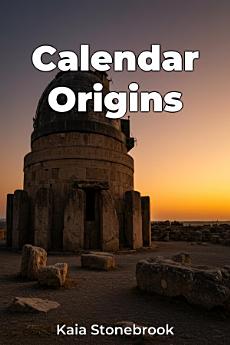Calendar Origins
mar 2025 · Publifye AS
Libro electrónico
56
Páginas
family_home
Apto
info
reportLas calificaciones y opiniones no están verificadas. Más información
Acerca de este libro electrónico
Calendar Origins explores the captivating history of how ancient civilizations developed calendars, revealing their profound impact on human societies. Discover how early cultures, from Mesopotamia to the Mayan civilization, ingeniously aligned human activities with natural cycles. Intriguingly, calendars weren't just about tracking time; they were deeply intertwined with agriculture, religion, and social structures, shaping the rhythm of daily life.
The book emphasizes that calendars are cultural artifacts, reflecting a society's relationship with the cosmos and its internal organization. The book examines lunar, solar, and lunisolar calendars, illuminating the ingenious methods used to observe celestial events. For instance, the Egyptians created a solar calendar that greatly influenced their religious festivals and administration.
Beginning with foundational concepts, the book progresses to analyze calendar systems in Mesopotamia, Egypt, and Mesoamerica. It concludes by tracing the evolution from these ancient systems to the Gregorian calendar, highlighting the long journey from early observations to modern standardization of time measurement.
Califica este libro electrónico
Cuéntanos lo que piensas.
Información de lectura
Smartphones y tablets
Instala la app de Google Play Libros para Android y iPad/iPhone. Como se sincroniza de manera automática con tu cuenta, te permite leer en línea o sin conexión en cualquier lugar.
Laptops y computadoras
Para escuchar audiolibros adquiridos en Google Play, usa el navegador web de tu computadora.
Lectores electrónicos y otros dispositivos
Para leer en dispositivos de tinta electrónica, como los lectores de libros electrónicos Kobo, deberás descargar un archivo y transferirlo a tu dispositivo. Sigue las instrucciones detalladas que aparecen en el Centro de ayuda para transferir los archivos a lectores de libros electrónicos compatibles.







